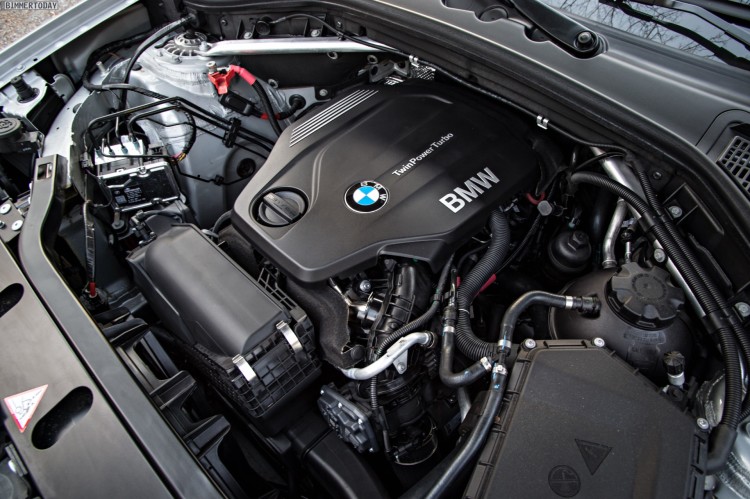The BMW B47 is a turbocharged inline-four diesel engine that debuted in 2014 as part of BMW’s modular B-series engine family, replacing the N47. It’s a versatile unit found in a wide range of models: the 1 Series, 2 Series, 3 Series, 4 Series, 5 Series, X1, X3, X4, as well as certain MINI models.
BMW designed the B47 to address the shortcomings of its predecessor while offering improved reliability, cleaner emissions, and better tuning flexibility. In this article, we’ll explore the reliability, efficiency, tuning potential, and overall pros and cons of the B47 diesel.
Reliability
Overall, the B47 has proven to be a dependable engine when maintained properly. By relocating the timing chain to the front of the engine, BMW made it both more durable and easier to service compared to the N47.
The B47 is generally regarded as a strong and dependable engine, capable of handling high mileage if properly maintained. Owners regularly report well over 120,000 miles without major issues. One of our writers had a BMW 320d with the B47 engine and he always praised it as being one of the most reliable diesels he’s ever owned. Fuel economy was excellent, and the engine still felt strong after 100k kilometers.
That said, no engine is bulletproof. Common trouble spots for the B47 include:
- EGR valve and cooler failures, sometimes leading to recalls.
- DPF (diesel particulate filter) clogging, especially on cars driven mostly in the city.
- Turbocharger wear if oil changes are neglected.
- Timing chain wear at very high mileage (far less frequent than the N47).
Routine maintenance—oil changes with BMW-approved oil, checking coolant and EGR condition, and taking the car on longer drives to help the DPF regenerate—will greatly extend engine life.
Efficiency
Efficiency is the B47’s strongest trait. BMW engineered the engine with common-rail direct injection, variable geometry turbocharging (on most versions), and AdBlue SCR injection to meet strict Euro 6 emissions standards.
Depending on the variant, the B47 produces between 114 hp and 231 hp, with torque ranging from 270 to 500 Nm. Despite the strong torque, fuel economy is impressive:
- Smaller models like the 116d or 320d can achieve 50–60 MPG (UK) on long runs.
- Even heavier SUVs like the X3 or X4 return 40+ MPG in real-world driving.
Later B47 versions (the B47TÜ1) also added twin-turbo setups and 48-volt mild hybrid systems, further boosting both efficiency and drivability.
Tuning
Diesel engines have always had good tuning potential, and the B47 is no exception. With a simple ECU remap, owners often see power gains of 30–50 hp and torque increases of 60–80 Nm without changing hardware.
For enthusiasts wanting more, supporting mods can help, such as:
- Upgraded intercoolers for lower intake temps.
- Performance exhaust/downpipes (where emissions rules allow).
- Larger turbocharger swaps for serious power.
That said, while the B47 can handle tuning well, it isn’t as over-engineered as BMW’s larger six-cylinder diesels like the N57. Pushing it too far without proper cooling, fueling, and maintenance can shorten its lifespan.
Pros and Cons
Pros
- Far more reliable than the N47 it replaced.
- Excellent fuel efficiency across all variants.
- Strong torque delivery, especially in twin-turbo versions.
- Good tuning potential for modest power gains.
- Wide availability in BMW and MINI models.
Cons
- Still prone to EGR and DPF issues over time.
- Turbocharger and timing chain wear possible at high mileage.
- Diesels are less popular in some markets due to emissions regulations.
- Less robust under extreme tuning than BMW’s six-cylinder diesels.
BMW Models Using The B47 Engine
- B47D20 (85 kW / 114 hp)
- B47C/D20 (110 kW / 148 hp)
- 2014–2016 F10 518d
- 2014–2021 F45 218d Active Tourer
- 2014–2021 F46 218d Gran Tourer
- 2015–2019 F20 118d
- 2015–2021 F22 218d
- 2015–2017 F25 X3 sDrive18d
- 2015–2019 F30/F31/F34 318d
- 2015–2020 F32/F36 418d
- 2015–2022 F48 X1 sDrive18d
- 2015–2024 F54 MINI Cooper D Clubman
- 2017–2023 F39 X2 sDrive18d
- 2017–present F60 MINI Cooper D Countryman
- 2018–2023 G30 518d
- 2019–present G20 318d
- 2019–2024 F40 118d
- B47C/D20 (120 kW / 161 hp)
- 2015–2024 F56 MINI Cooper SD
- 2015–2018 F30 320d EfficientDynamics Edition
- B47C/D20 (140 kW / 188 hp)
- 2014–2016 F10/F11 520d
- 2014–present F26 X4 xDrive20d
- 2014–present F45 220d Active Tourer
- 2014–present F46 220d Gran Tourer
- 2015–present F20 120d / 120d xDrive
- 2015–present F22/F23 220d
- 2014–2017 F25 X3 sDrive20d / xDrive20d
- 2015–2019 F30/F31/F34 320d
- 2015–present F32/F36 420d
- 2015–present F48 X1 sDrive20d
- 2015–present F54 MINI Cooper SD Clubman
- 2016–present G30/G31 520d
- 2017–present F39 X2 xDrive20d
- 2017–present F60 MINI Cooper SD Countryman
- 2017–present G01 X3 xDrive20d
- 2018–present G02 X4 xDrive20d
- 2018–present G32 620d Gran Turismo
- 2019–present G20 320d
- 2019–present F40 120d xDrive
- 2019–current F44 220d Gran Coupé
- 2021–present G42 220d
- B47C/D20 (165 kW / 221 hp)
- 2015–2019 F20 125d
- 2015–2019 F22 225d
- 2015–2018 F30/F31/F34 325d
- 2016–2020 F32/F33/F36 425d
- B47C/D20 (170 kW / 228 hp)
- 2018–present G05 X5 xDrive25d
- 2015–2018 F15 X5 sDrive25d / xDrive25d
- 2016–present F48 X1 xDrive25d
- 2017–2019 G30/G31 525d
- 2018–present F39 X2 xDrive25d
- 2016–2019 G11 725d / 725Ld
Should You Get A BMW With The B47 Engine?
The BMW B47 is a balanced and dependable diesel engine. It corrects many of the N47’s flaws, offers strong fuel efficiency, and has just enough tuning headroom to satisfy enthusiasts. While not as bulletproof as BMW’s larger diesels, it remains one of the better choices in BMW’s modern engine lineup—especially if you value torque, economy, and longevity in a daily driver.





